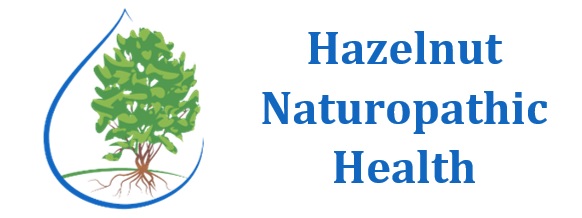
All About Connective Tissue Disease
Connective tissue is the scaffolding of the human body upon which all other cells and tissues are built. This tissue is interwoven throughout the body, and connective tissue disease can create terrible health problems. This class of diseases includes more than 200 different diagnoses. These diseases are more difficult to identify as symptoms tend to overlap quite a bit with each other. Connective tissue disorders can occur by themselves, or someone can be affected by more than one connective tissue disorder at a time.
What is Connective Tissue?
Collagen and elastin are the building blocks of connective tissue in the body. Collagen is found in structures like blood vessels, ligaments, tendons, bones, skin, and the cornea of the eye. Elastin is more stretchy and can be found in the ligaments and skin. A connective tissue disease (CTD) is a disorder of collagen and elastin in the body. When CTD occurs, it creates inflammation in these tissues, leading to damage in the body over time. Symptoms that can occur with CTD include fatigue, joint/muscle aches and pain, weakness, coldness in the hands, breathing difficulties, kidney problems, skin changes, etc. CTDs are generally genetic or autoimmune in origin.
Examples of CTDs:
Rheumatoid Arthritis - The body attacks its own joints in this disease. It can also cause problems with the heart, lungs, and eyes. It tends to be one of the most common CTDs and affects women more often.
Systemic lupus erythematosus (SLE) - Commonly referred to as lupus, SLE is also a more common disease. It tends to affect women ages 15 to 40 the most. In the United States, anywhere from 15 to 50 people per 100,000 are affected by this chronic disease. It involves chronic pain and inflammation with many different symptom pictures.
Sjögren’s syndrome - This slowly progressing disease mainly affects exocrine glands. This can lead to severely dry mouth and eyes followed by dry skin, lungs, and genital tissue in women. It is estimated to affect around 3% of people who are over the age of 50 with women most commonly affected.
Scleroderma - Also known as systemic sclerosis, this disease affects multiple body systems. It usually occurs between the ages of 30 and 50 and is estimated to occur in 5-20 people out of a million. This severe autoimmune disease causes structural and functional changes in small blood vessels and causes fibrosis (or hardening) of the skin and organs.
How to Eat for Your Connective Tissue
It’s no secret that what you put in your mouth affects your overall health. With CTD, this is no exception. A whole food diet is rich in a moderate amount of protein and fruit, lots of vegetables, and healthy fats. Avoid sugar, highly processed oils, and heavily processed foods as much as possible. Studies have also found a few specific nutrients can be helpful. Overall, much more research in this field is needed.
Mediterranean Diet - There has been some research that’s found a Mediterranean-based diet may be helpful for CTD. This diet includes fruit, vegetables, whole grains, legumes, fish, olive oil, less red meat, and moderate alcohol intake. It’s been found to be more anti-inflammatory and includes polyphenols from plants and healthy fatty acids.
Lower Carbohydrate Intake - Some studies have also found that lowering carbohydrate intake may be helpful with certain CTDs. In a small study, it was shown to improve fatigue and support a healthier weight in SLE patients. There is also some promising evidence recommending going gluten-free. There has been a reduction of symptoms or complete remission of symptoms in some cases (i.e. dermatomyositis and Sjögren’s).
Healthy Fats - Eating fatty fish a few times a week may also be helpful as they contain omega-3s, which are anti-inflammatory. Types of oily fish include trout, salmon, sardines, mackerel, herring, tuna, etc. Other fat sources like extra virgin olive oil and flaxseeds may also be helpful when dealing with CTDs.
Natural Supplement Ideas
Supplements can also help support health in those with CTD. Research in the field is still ongoing, so there’s not a lot of data to say certain supplements will improve symptoms.
Omega-3s - Omega-3 fatty acids are polyunsaturated fats and include eicosapentaenoic acid (EPA) and docosahexaenoic acid (DHA). They can help reduce inflammation, lower joint pain and stiffness, improve cholesterol labs, and even reduce the chance of autoimmune disease in healthy people. As a reminder, it’s important to get fish oil from a reputable business as there are large variations in quality.
Vitamin D - Vitamin D deficiencies are common among those with CTD. The exact reason why is still being researched at this time. Vitamin D is important to overall immune system health as it helps modulate the immune system’s functions. This means Vitamin D helps the immune system become more or less active as needed. It’s recommended to take somewhere between 1,000 - 2,000IU daily though more or less may be appropriate depending on the disease and symptoms. Additionally, there’s been some research that shows Vitamin D may improve fatigue in CTD patients.
Multivitamin - A high-quality multivitamin may be useful to help cover any nutritional gaps in dietary foods. Research has found B vitamins, vitamin C, vitamin E, selenium, etc., have been found to be deficient in some people with CTDs. It’s important to chat with a health professional to find a good brand as quality varies greatly from company to company.
Other supplements that were found useful, especially for the kidneys, include green tea extract and curcumin. Research found it improved high blood pressure and reduced protein in the urine.
To Sum It All Up
As always, if you suspect you have some sort of illness/disease, you should see medical attention. Your doctor may run some blood tests as well as make a referral to a rheumatologist who specializes in autoimmune diseases. Be sure to consult with a health professional before adding anything to your lifestyle. If you are looking for more natural options to support your connective tissue health, reach out to your local holistic health practitioner.
Resources:
- Bland, Jeffrey S. 2022. "Therapeutic Use of Omega-3 Fatty Acids for Immune Disorders In Search of the Ideal Omega-3 Supplement." Integrative Medicine (Encinitas, Calif.); 21(5): 14-18.
- Cedars-Sinai. N.D. "Connective Tissue Disorders." https://www.cedars-sinai.org/health-library/diseases-and-conditions/c/connective-tissue-disorders.html
- Cleveland Clinic. N.D. "Connective Tissue Disease." https://my.clevelandclinic.org/health/diseases/14803-connective-tissue-diseases
- Gaubitz, M. 2006. "Epidemiology of Connective Tissue Disorders." Rheumatology (Oxford, England); 45(3): iii3-4. Revised Dec. 16, 2019. doi:10.1093/rheumatology/kel282.
- Lisevick, Alexa et al. 2022. "Nutrition and Connective Tissue Disease." Clinics in Dermatology; 40(2): 166-172. doi:10.1016/j.clindermatol.2021.10.010
- Oliviero, Francesca, Paola Galozzi, Elisabetta Zanatta, Mariele Gatto, Paolo Spinella, and Andrea Doria. 2021. "The Influence of Dietary Intervention in Connective Tissue Diseases: Evidence from Randomized Clinical Trials" Rheumato; 1,(1): 5-16. https://doi.org/10.3390/rheumato1010003
- Reynolds, John A, and Ian N Bruce. 2017. "Vitamin D Treatment for Connective Tissue Diseases: Hope Beyond the Hype?" Rheumatology (Oxford, England); 56(2): 178-186. doi:10.1093/rheumatology/kew212

Leave a Comment
(0 Comments)